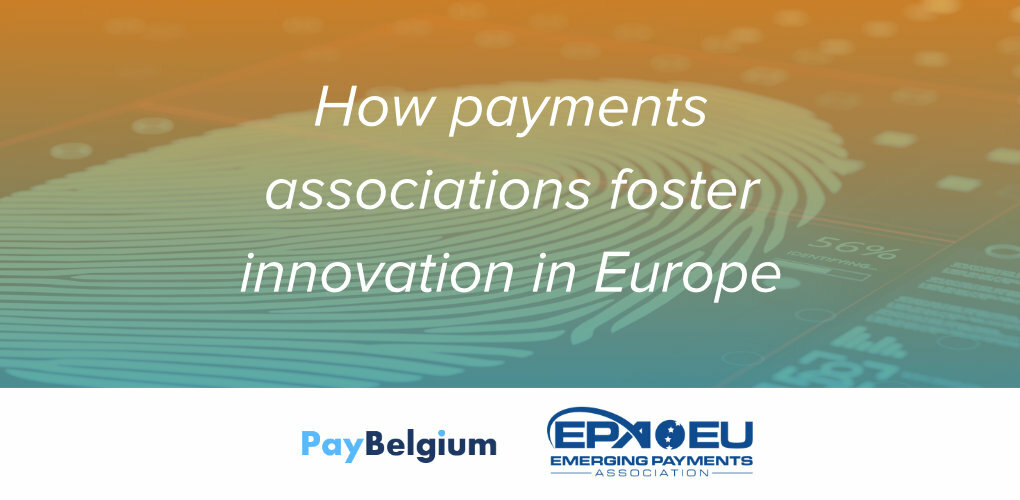
Insights & Opinions
How payments associations foster innovation in Europe
Tue, 29 Jun 2021


In a session earlier this year on innovation in payments, someone in the audience argued that setting up a separate payments association, independent of the banking federation, is counterproductive, as it creates an us-against-them attitude.
This statement triggered me. Although I understand the reasoning, I don’t entirely agree (see also this blog from the start of A78). Having an association to bundle the opinions of payment institutions does make sense.
They have different, sometimes conflicting interests compared to banks, so they deserve a separate association, independent of banks. But, of course, that is just another opinion from someone who is not directly impacted.
I decided to invite two representatives of payments associations to talk about this at The Banking Scene Afterwork. So on June 24, we welcomed Sophie Peeters, Secretary-General of PayBelgium and Thibault de Barsy, General Manager of the Emerging Payments Association Europe.
PayBelgium
PayBelgium is the successor of the above-mentioned A78. “Our main goal is to achieve a more competitive and more innovative payments landscape in Belgium, to set an example for other countries”, explained Sophie.
“We aim to achieve that goal by focusing on two things: uniting and empowering the non-bank payment sector through knowledge sharing, networking among our members and by developing common policy positions that we then present on behalf of our members, to the government, National Bank of Belgium, and various Belgian and European associations and institutions.”
Today, they represent 2/3 of the Belgium payment institutions and e-money institutions, about 20 members.
Sophie: “We did not create PayBelgium to target the banks. We created it to bring forward the voices of non-bank payments service providers. Our members were not given a seat at the table, so we needed to create our own. Creating PayBelgium was also answering a call we had from the government to make that happen.”
“I’m in touch with Febelfin regularly to align our members’ agendas and identify any issues where interests are aligned to see how we can cooperate”, Sophie explained. Also individual banks know that they can talk to PayBelgium, for example, for feedback on their APIs.
Emerging Payments Association Europe (EPAE)
Like PayBelgium, EPAE is a membership-based association that unites payments institutions, but the going-in position and objectives are entirely different. Thibault: “We define ourselves more as a business club, a business club of decision-makers in the payment industry. The main focus for us is to facilitate business within our members and for our members.”
Historically, the Emerging Payments Association was founded 10 years ago in Brussel, with 150 members all over Europe. The EPAE is a spin-off resulting from Brexit.
They have no ambition to develop common policy positions, but they influence the payments industry by bringing people together and by doing market research with their members. By inviting policymakers, they can have their voice heard, but they will not take a formal common position on specific policy topics.
Next to their continental ambitions, there is another striking difference with PayBelgium. As they position themselves more as a business club for decision-makers in the payments industry, banks can also become members. However, the number of bank members today is limited to Banking Circle and LHV.
How both associations foster innovation in Europe
Payment associations like PayBelgium and EPAE clearly play an important role to make Europe a more innovative payments market. Giving payments institutions a single voice makes them heard a lot louder. PayBelgium showed the National Bank how well, or poor, APIs were developed, which stimulated banks to improve their PSD2 APIs faster.
Their next focus is achieving a level-playing field for banks and non-banks, a challenge that is currently being investigated on a European level.
Sophie: “For instance, on the access to payment systems, non-banks are still dependent on banks to get that access. It creates all kinds of issues in terms of increased costs for customers, the concentration of risk. An important challenge for our members is to realise this principle of the same activity, same risk, same access. So, to the extent banks and non-banks provide similar payment services, banks and non-banks should get equal system equal access to the payment system.”
EPAE connects international institutions and helps them to learn from each other. Their main challenge is that Europe is one continent that remains a group of 27 countries. Therefore, lessons learned from one member will improve the continental expansion of the other.
Thibault shared the example of the national interpretations to everything related to credit: “If you look at the different definitions of credit from one country to another, let’s not even talk about behaviour. The legal definition is not even the same.”
He continued: “Klarna has many issues internationalising its concept because every new country has to readapt their credit risk modelling completely. For example, in some countries, you don’t have a database of bad debt. In some countries, it’s a negative list; in some countries is the positive list. In some countries, it’s purely forbidden.”
The communication between members and exchange of tips&trics and best practices can help overcome this kind of challenge. By keeping the lines open with the regulator, they remain well informed where innovation is being blocked.
Conclusion
So do these associations make sense? Of course, they do, in my opinion, just like having The Banking Scene makes sense in sharing thought leadership, igniting discussions and inspiring more innovation to improve banking for the years to come.
Like EPAE, The Banking Scene has no ambition in the lobbying sphere, but we sure want to glue key stakeholders and let them innovate together! With The Banking Scene Afterwork, we realise this every week, and soon we will come together again in person, on September 7, at the Payments BBQ Night and on October 28 at The Banking Scene Art Night.